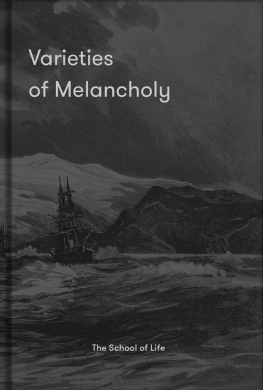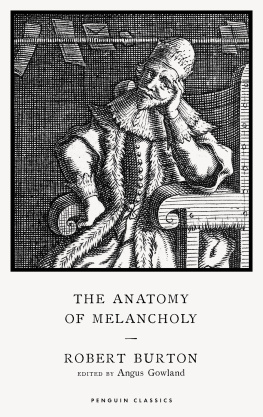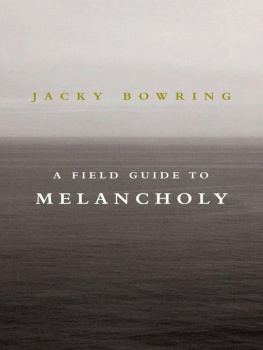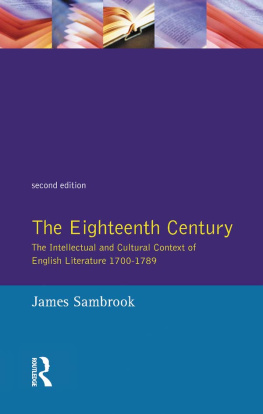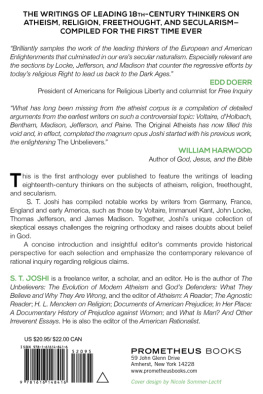Suffering Scholars
INTELLECTUAL HISTORY OF THE MODERN AGE
Series Editors
Angus Burgin
Peter E. Gordon
Joel Isaac
Karuna Mantena
Samuel Moyn
Jennifer Ratner-Rosenhagen
Camille Robcis
Sophia Rosenfeld
Suffering Scholars
Pathologies of the Intellectual in Enlightenment France
Anne C. Vila

Copyright 2018 University of Pennsylvania Press
All rights reserved. Except for brief quotations used for purposes of review or scholarly citation, none of this book may be reproduced in any form by any means without written permission from the publisher.
Published by
University of Pennsylvania Press
Philadelphia, Pennsylvania 191041-4112
www.upenn.edu/pennpress
Printed in the United States of America
on acid-free paper
10 9 8 7 6 5 4 3 2 1
Library of Congress Cataloging-in-Publication Data
ISBN 978-0-8122-4992-7
Contents
DAF | Dictionnaire de lAcadmie franaise, 1694 and 1762 (accessed via the ARTFL Project, https://artfl-project.uchicago.edu/content/dictionnaires-dautrefois) |
DPV | Diderot, uvres compltes, ed. Herbert Dieckmann, Jacques Proust, Jean Varloot, et al. (Paris: Hermann, 1975) (34 vols. anticipated) |
ENCYC | Encyclopdie, ou dictionnaire raisonndes sciences, des arts et des mtiers, etc., ed. Denis Diderot and Jean le Rond dAlembert (accessed via the ARTFL Project, http://encyclopedie.uchicago.edu) |
OCV | Voltaire, Oeuvres compltes de Voltaire / The Complete Works of Voltaire, 143 vols. (Geneva: Institut et Muse Voltaire / Toronto: University of Toronto Press / Oxford: Voltaire Foundation, 1968) |
SGL | Tissot, De la sant des gens de lettres, 3rd rev. ed. (Lausanne: Grasset, 1775) |
SVEC | Studies on Voltaire and the Eighteenth Century |
A Strange Idea: The Singularity of the Poetically Organized
Few characters embody the myth of the suffering scholar more dramatically than the mysterious protagonist of Honor de Balzacs novel Louis Lambert (1832), that poor poet who was so nervously constituted, often as vaporous as a woman, dominated by a chronic melancholy, entirely sick from his genius as a girl is sick from the love for which she yearns without knowing it. And what factors were at play in this conception of thought as capable of sapping the life force of the person who engaged in it too intensely?
Balzac did not invent the strange condition of being sick from ones genius. Concern about infirmities tied to study dates back to Aristotles famous problem XXX, which linked intellectual superiority to melancholy. The topic was also discussed by early modern writers like Marsilio Ficino (De triplici vita; Three books on life [1489]), Robert Burton (The Anatomy of Melancholy [first ed., 1621]), and Daniello Bartoli (Dellhuomo di lettere difeso et emendato; English trans., The Learned Man Defended and Reformed [1660]).French vernacular, a phenomenon illustrated by the popularity of works like Samuel-Auguste Tissots De la sant des gens de lettres, first published in French in 1768. Though hardly limited to French-speaking Europe, the link between mental endeavor and disorder was embraced with particular vigor in that contextas was the tendency to imbue cerebralists with an aura of otherness and detachment from the world. Oddly perhaps, an important strand of French Enlightenment thought portrayed intellectuals as peculiarly susceptible to altered states of health as well as psyche.
That situation looks less odd if we recall that the eighteenth century was also an age of great anxieties, many of which revolved around health. Compared with the centuries that preceded it, this one was relatively healthy: mortality rates declined in France and longevity rose, due to factors that included a reduction in famine, fewer wars on French soil, and the declining frequency of the waves of massive epidemics like the plague, which had been a regular fact of life.
Viewed against the backdrop of the periods health anxieties, the Balzacian-style cerebralist comes more fully into focus: although obviously a reflection of Balzacs own vision of the life of the mind, this figure also had roots in eighteenth-century ways of thinking about thinkers. In the eyes of numerous Enlightenment-era commentators, the passions and pathologies of intellectuals and artists made them singularnot simply as individuals like the original genius (a new type of being, born during this period) but also as a group of people bound together by their working habits and their devotion to the life of the mind.mental application, and fictional portrayals of meditators in the grips of cogitation.
Singularity, we should note, carried both positive and pejorative meanings at the time, an ambivalence illustrated by the entry for singulier in the 1694 Dictionnaire de lAcadmie franaise: Unique, particular, that which has no peer, rare, excellent.... It is sometimes used negatively, and signifies bizarre, capricious, affecting personal distinction.
Montesquieus larger point was that people who actually thought for themselves were in the minority in the conformist milieu of polite society: Most people resemble each other in the sense that they dont think: they are eternal echoes, who have never said anything [new] and always repeated. That remark brings to mind various critiques he made in his novel Les Lettres persanes (1721), like the character Ricas wry comments on the French nations slavish devotion to the latest sartorial fashions, and the tale he recounts of the two aspiring beaux esprits who take turns uttering empty witticisms theyve practiced in advance. However, like many contemporaries, Montesquieu attributed the uniqueness of genuine thinkers to more than just their social comportment: he held superior minds to be exceptional in physical organization as well.
This periods blanket term for intellectuals, gens de lettres, encompassed many sorts of knowledge seekers, but it was commonly evoked to single them out as a group in terms of their habits and temperament. Thanks to the rise of the maladies des gens de lettres, the singularity of intellectuals and artists came to entail more than their unique ways of thinking or behaving: it also derived from the special constitution they supposedly possessed. This book is designed to tell the story of how the bodily as well as moral exceptionalness
Background Currents: Sensibility, Psychology, and the Mind/Body Relation
Obviously, French culture has long given privileged status to intellectuals. Even today, the mythology of Frenchness endows thinkers with a marvelous singularity more glamorous than that which most other nations bestow upon them.
Various aspects of eighteenth- and early nineteenth-century French culture contributed to the perception of the intelligentsia as diseased in a figurative or literal sense. One factor was the struggle for control over public opinion between the philosophes and the anti-philosophes: both sides delighted in throwing verbal bombs at the enemy camp, sometimes denouncing its beliefs as poisonous bile or the product of deranged minds. Pathological rhetoric was commonly used in debates over the state of the Republic of Letters. Whereas Rousseau tied book learning to physical and moral degeneration in the
Next page

